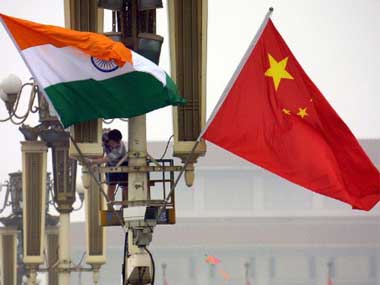Economists and market observers have said that the Government of India is now officially in a protectionist mode. The impact of the novel coronavirus outbreak on the global economy is something which no one can comprehend until countries, including India, come out of lockdown mode. In a move which is being received with enthusiasm for the most part in India amid fears of takeovers, the Department for Promotion of Industry and Internal Trade (DPIIT) has by Press Note No. 3 (2020 Series)
amended the Foreign Direct Investment (FDI) policy for curbing ‘opportunistic takeovers/acquisitions of Indian companies due to the current COVID-19 pandemic’. The new amendment requires certain investment to come through the government approval route alone, and not under the direct route of investment. In other words, with the new amendment, FDI in these cases would require an approval from the Government of India, which would mean that the government would be able to monitor the extent of these investments and give its approval, should it choose to do so. [caption id=“attachment_3894303” align=“alignleft” width=“380”] Representational image. AFP[/caption] At a glance, the amendment of the FDI policy may be construed by many as one which seeks to protect Indian companies from takeovers by any foreign entity, however, a detailed reading of this amendment brings to light one aspect — the takeover that is aimed at being prevented is one by entities located in a country which shares a land border with India or where the beneficial owner of an investment into India is situated in or is a citizen of any such country. The new amendment has modified the earlier position which placed some restrictions on citizens and/or entities of Bangladesh and Pakistan with the majority of the restrictions being on the latter. India shares its land borders with Pakistan, Bangladesh, Nepal, Myanmar, Bhutan, China and Afghanistan (although today, this portion of India’s territory has been illegally occupied by Pakistan, which India calls Pakistan-Occupied Kashmir). Of these countries, only one has entities with the financial capability to indulge in takeovers/acquisitions as on date, and this FDI amendment seems to be have entities from this one state alone in its crosshairs — China. It will not be out of place to point out that the amendment to the FDI policy comes on the heels of the Government of India clarification that required the Securities and Exchange Board of India to increase its scrutiny of investments in the Indian stock markets from China and Hong Kong. Moreover, the news of the People’s Bank of China raising its stake in a major Indian lender had been met with a lot of suspicion which resulted in speculation (not completely unfounded) that Chinese companies could try and possibly takeover Indian companies during this time of the pandemic. The proponents of the open market theory may argue that the move of the Government of India seeks to target China, and chances are they may be right in that analysis. However, given the fact that COVID-19 originated from Wuhan in China and with several countries taking precautionary measures to protect businesses and entities operating from within its borders, this argument falls flat given that if such takeovers do indeed take place, India may open from the lockdown and find several of its entities operating under the beneficial ownership of Chinese entities. Additionally, this move by India is not the first by a State – Australia and several countries in Europe have already put in place plans and concrete measures to stop such opportunistic takeovers/acquisitions. What is interesting however is the fact that the Government of India is not today concerned with possible suspected takeovers from European or US-based entities, rather its attention seems to be focused on entities backed by the People’s Republic of China. And there is a reason for this. China is known the world over for its investments which its critics argue are often opportunistic and are routed in areas where it seeks to increase its clout. The continent of Africa is an example of this. China has in the past spent billions (quite possibly trillions) in the continent seeking to increase its clout in the region. In fact, it has invested in infrastructure projects, projects involving natural resources and also ports (and it does not take an economics major to figure out why, given that China is one of the biggest exporters in the world). China’s African dream, however, seems to be on a rocky patch presently in the wake of allegations of wide-spread racism directed at African students studying in China who ironically were accused of being carriers of COVID-19, which resulted in Chinese envoys being summoned by many governments in Africa seeking answers about the ill-treatment of African students and their eviction from their places of residence in China. Along India’s borders, it is well-documented that China is seeking to increase its foothold in the region and the China Pakistan Economic Corridor (which has constantly been met with opposition by India) that would give China access to ports is one such example of Chinese ingress in areas too close for India’s comfort. In fact, there are reports that say that China has increased its investments in infrastructure projects in Pakistan in light of this proposed project. On the Indian front, Chinese investments in India have risen from $1.8 billion in 2014 to an estimated $8-9 billion in 2017. Greenfield investments have seen a substantial rise. Other Indian entities have seen an influx of Chinese investments into it. These are not miniscule rises in investments. [caption id=“attachment_8274931” align=“alignright” width=“380”]
 Representational image. AP[/caption] When India opened up its market in the early 1990’s with Manmohan Singh at the helm of the Finance Ministry, the decision proved to be a move which saw the economy being given a shot in the arm and set India up to be a powerhouse in the decades to come. Today, with its decision to restrict investments, the Government of India under the leadership of Prime Minister Narendra Modi has decided that it is in India’s best interest to come out of this pandemic with its industries and entities intact and still in Indian control. Chinese companies investing in Indian entities during the time of the global pandemic may not be the best idea, as argued by observers, given that there are fears among those in the industry that these entities may be backed by the Chinese government to make inroads into global jurisdictions including India. The move of the Government of India may not be fully protectionist in nature, but on the contrary could be construed as one which will ensure that no Indian entity will be shortchanged during this time of pandemic. India will come out of COVID-19, and when it does, there is absolutely no doubt that it would be in India’s best interest to have ownership of its entities intact and in Indian control. The writer is an Advocate at the Bombay High Court with a keen interest in international law, global politics and investments
Representational image. AP[/caption] When India opened up its market in the early 1990’s with Manmohan Singh at the helm of the Finance Ministry, the decision proved to be a move which saw the economy being given a shot in the arm and set India up to be a powerhouse in the decades to come. Today, with its decision to restrict investments, the Government of India under the leadership of Prime Minister Narendra Modi has decided that it is in India’s best interest to come out of this pandemic with its industries and entities intact and still in Indian control. Chinese companies investing in Indian entities during the time of the global pandemic may not be the best idea, as argued by observers, given that there are fears among those in the industry that these entities may be backed by the Chinese government to make inroads into global jurisdictions including India. The move of the Government of India may not be fully protectionist in nature, but on the contrary could be construed as one which will ensure that no Indian entity will be shortchanged during this time of pandemic. India will come out of COVID-19, and when it does, there is absolutely no doubt that it would be in India’s best interest to have ownership of its entities intact and in Indian control. The writer is an Advocate at the Bombay High Court with a keen interest in international law, global politics and investments
With its new FDI rules, the Government of India has decided to ensure that the country comes out of the COVID-19 pandemic with its industries and entities intact and still in Indian control
Advertisement
End of Article


)

)
)
)
)
)
)
)
)



